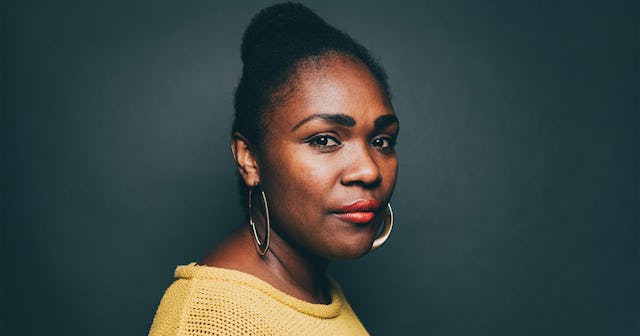How I Learned To Parent Myself As An Adult

I consider myself a stoic woman. A hard-headed woman. A “take no shit” sorta woman. And in many ways, I am. Growing up in an abusive household, I had to learn how to buck up and suck it up very quickly. I locked my heart in a box. I hid “little Kim” away in a cage, and she lived there, rather comfortably, for years. For three decades, I hid behind the safety of bars, and an invisible mask. But when my mother died in the summer of 2020, the door swung open on my childhood and my past. And that damn cage — the one which protected me for so long — became a prison.
I lost both myself and my sanity.
Of course, I’m getting ahead of myself. Before I jump to the present, I should shed a bit more light on my tumultuous childhood because it was precisely that: tumultuous. My grandfather died when I was five. My father died when I was 12, and shortly after his passing, my mother was consumed by depression, an illness which, when coupled with alcohol, would ultimately claim her life. In short, I grew up steeped in sadness and trauma. Hurt was the way in which I was raised. There was also abuse. My mother yelled at me frequently. She called me names and berated me and put me down, and while it was difficult, I didn’t think much of it, at least not at the time, because I developed a thick skin and consciously shielded “little Kim” from the shit storm that was my life. At least, until June, when I started to experience PTSD-like flashbacks.
I spoke with my psychiatrist the moment they started. I asked him for help. I begged him to increase my meds. I began running more, my go-to form of self-care, and I found a new therapist, one with a background in trauma. We began working through the complexities of my life. But when we got to my childhood, she had a surprising suggestion. She told me I needed to (re)parent my inner child. I mean, there was a lot more to it than that, but she said I needed to learn to love and care for “little Kim.”
“Reparenting [can] help an individual repair attachments and develop more secure and healthy relationships,” Rachel O’Neill, an Ohio-licensed professional counselor and Talkspace therapist, tells Thrive Global. “It can help an individual recognize and repair patterns of non-functional behavior, which are common amongst abuse victims.” And it can help individuals heal.
“Reparenting is based on the belief that many psychological issues stem from a child growing up without his or her needs being met,” Ladan Nikravan Hayes of Talkspace writes. “The child is not made to feel secure and unconditionally loved, so they grow up to be an adult who can’t navigate relationships and life as well as they should.”
Of course, if I’m being honest, it all sounded hokey. When my therapist suggested I place “little Kim” on my lap — when she told me to hold her and coddle her and parent her the way I would my own children — I laughed. This, I thought, was ridiculous. It was heady, psychobabble bullshit. But after months of resistance, I caved. I began speaking to myself as I do my own daughter, telling her things like “It’s okay. You’re okay. It’s not your fault. Everyone makes mistakes.” When I felt waves of sadness and anxiety rush forward, I sat with the feelings instead of running from them.
I let “little Kim” cry, drying her tears with tissues and edges of my shirt and sleeves.
I also challenge the negative thoughts, the ones that tell me I’m not good enough or smart enough. The ones which, for decades, had me convinced I was unworthy: of love, health, wealth, or happiness. How? By asking myself a simple question: Prove it. Bad mom? Prove it. Bad wife? Prove it. Bad employee? Prove it. I force myself to look at my life through a very different lens, and then I say “you are enough.”
I love myself selflessly and unconditionally, the way I do my daughter and two-year-old son.
Is this process easy or perfect? Fuck no. It’s hard not to succumb to the negativity, especially as someone who lives with depression and anxiety. As someone who lives with bipolar disorder and PTSD. It’s also awkward AF. Many times I do not believe the things I tell myself. I doubt every confident, loving message I say. But — and this is important — I still say the words. I hold myself, literally and figuratively. “Little Kim” sits on my lap, and I’ll keep her there as long as she needs to be. Until she feels loved. Because reparenting isn’t about perfect parenting or “unparenting,” it’s about being parented. It’s about feeling safe, secure, confident, cared for, and loved.
This article was originally published on